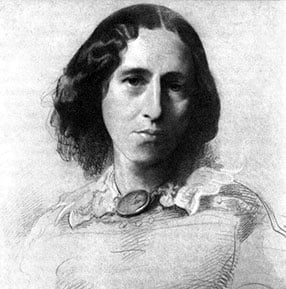I Grant You Ample Leave
“I grant you ample leave
To use the hoary formula ‘I am’
Naming the emptiness where thought is not;
But fill the void with definition, ‘I’
Will be no more a datum than the words
You link false inference with, the ‘Since’ & ‘so’
That, true or not, make up the atom-whirl.
Resolve your ‘Ego,’ it is all one web
With vibrant ether clotted into worlds:
Your subject, self, or self-assertive ‘I’
Turns nought but object, melts to molecules,
Is stripped from naked Being with the rest
Of those rag-garments named the Universe.
Or if, in strife to keep your ‘Ego’ strong
You make it weaver of the etherial light,
Space, motion, solids & the dream of Time—
Why, still ’tis Being looking from the dark,
The core, the centre of your consciousness,
That notes your bubble-world: sense, pleasure, pain,
What are they but a shifting otherness,
Phantasmal flux of moments?—”
This poem is in the public domain. Published in Poem-a-Day on March 5, 2023, by the Academy of American Poets.
“I Grant You Ample Leave” was discovered by scholar Bernard J. Paris in a notebook of George Eliot’s unpublished writings and then included in his study “George Eliot’s Unpublished Poetry,” published in Studies in Philology, vol. 56, no. 3 (July, 1959). As Paris writes, the poem may have been part of an earlier draft of Eliot’s poem “A College Breakfast Party,” with which it shares certain themes. As its quotation marks suggest, it was possibly intended as a speech by one of the poem’s characters. In “Inside-Out: Texture and Belief in George Eliot’s ‘Bubble-World,’” published in George Eliot-George Henry Lewes Studies, vol. 60–61, no. 1 (September, 2011), Stella Pratt-Smith, assistant professor of English at Fort Hays State University, contra Paris’s belief that the poem is simply a monologue, writes, “Comprised of a mere twenty-one lines of blank verse, ‘I Grant You Ample Leave’ is an expert contraction—a distillation, even—of the powerful realism, science and philosophy that features throughout Eliot’s novels. It is more singularly introspective than many of her other works; the focus appears to be on Eliot’s own mind, rather than the activities and thoughts of fictional characters, which makes it unusually intimate, immediate and personal. At the same time, it is also keenly scientific in its intent. [. . .] [T]he poem displays her impatience with equating brain activity too easily with the unknowns of the self, in the absence of more convenient or available explanations.”

